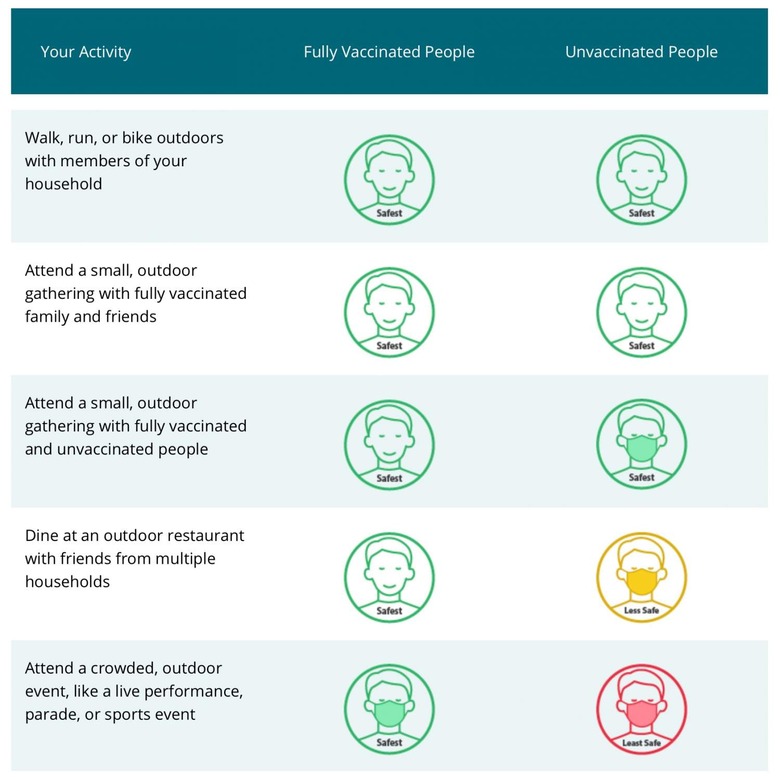CDC Outdoor Mask Rules Relaxed: The New COVID-19 Guidance
Fully vaccinated people can stop wearing masks outdoors in most situations, the CDC has recommended, updating its recommendations as increasing numbers of the US population have been immunized against the coronavirus. The US Centers for Disease Control and Prevention has gradually been easing its stricter precautions as vaccination levels spread, though there are still circumstances where greater caution is required.
Those who have been fully vaccinated, the CDC said today, can safely stop wearing a mask when outdoors. That's unless they're in a large crowd of strangers, the agency added.
The more permissive guidelines mean that both fully vaccinated and unvaccinated people are considered safe to walk, run, or bike outdoors with members of their household without wearing a mask. They can also go mask-less at small, outdoor gatherings as long as they're with fully vaccinated family and friends.

Those who have been vaccinated can attend small, outdoor gatherings with both fully vaccinated and unvaccinated people and not wear a mask, the CDC suggests. However unvaccinated people should wear a mask in those circumstances. Vaccinated people can also go without a mask when dining at outdoor restaurants with friends from multiple households, something the CDC says is still "less safe" even when masked for unvaccinated people.
Should they "attend a crowded, outdoor event, like a live performance, parade, or sports event" however, the CDC cautions, even fully vaccinated people should wear a mask. That's the "least safe" circumstance for unvaccinated people, even when masked.
The CDC guidelines for indoor activities continue to lean on safe mask wearing. Although fully vaccinated people can feel secure in choosing not to wear a mask when visiting indoors with other fully vaccinated people, the CDC recommends it for most other situations. That includes getting a haircut, going to an indoor crowded location such as a shopping center, or when on public transport or at a movie theater.
Masks should still be worn when attending indoor gatherings that mix vaccinated and unvaccinated people from multiple households, and when attending full-capacity worship services.
It's worth bearing in mind that the CDC's definition of "fully vaccinated" doesn't simply mean that you've had the required number of shots. People aren't considered fully vaccinated until two weeks after their final dose of the vaccine: i.e. two weeks after the single-shot version from Johnson & Johnson, or two weeks after the second dose of the Pfizer or Moderna vaccines. Until that point, people should continue following the stricter versions of the guidelines.
